Why do terminally ill patients choose to end their lives early?
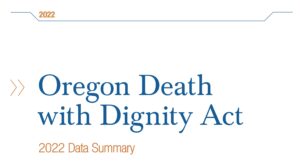 As I have done for the last 25 years, I quickly opened the most recent annual “Oregon Death with Dignity Act: 2022 Data Summary.” Yes, it has been 25 years since Oregon made “medical aid in dying” (MAID) legal. At the time, this was often referred to as “physician assisted suicide” (PAS). In Oregon, and other jurisdictions, a physician can prescribe a lethal medication for terminally ill patients who request it and who appear to be within six months of dying. There are safeguards to assure patient safety and to address other concerns.
As I have done for the last 25 years, I quickly opened the most recent annual “Oregon Death with Dignity Act: 2022 Data Summary.” Yes, it has been 25 years since Oregon made “medical aid in dying” (MAID) legal. At the time, this was often referred to as “physician assisted suicide” (PAS). In Oregon, and other jurisdictions, a physician can prescribe a lethal medication for terminally ill patients who request it and who appear to be within six months of dying. There are safeguards to assure patient safety and to address other concerns.
For 25 years this list has been part of my lectures
My interest, each year, is drawn to the list of “End-of-life concerns.” I added this list to my lectures and writings as I went about the country speaking on making end-of-life decisions. These responses are the answers to the question, “Why did the patient want MAID?”
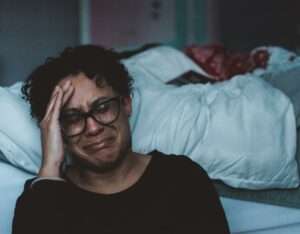
Photo by Claudia Wolff on Unsplash
Of the seven “concerns” listed, “Losing autonomy” is mentioned by 90.3% and “Less able to engage in activities making life enjoyable” is second at 90.0%. Next to last is “Inadequate pain control, or concern about it” (28%). You would think that pain would be one of the main reasons people want to end their lives sooner — to avoid pain. (See below for the whole list.)
The piece that has made it into my lectures and writings is the concern about “losing autonomy.” Understandably, people want to be in control. I am all in for controlling the things that can be controlled like physical pain. We often think about “pain and suffering” as two related issues as in, “Pain is inevitable, suffering is optional.” Suffering is the emotional and spiritual struggle that can accompany pain.
Seeking autonomy and avoiding suffering
At the risk of over simplifying, these patients are choosing an early exit to avoid suffering. Their greatest fear is losing the ability to make autonomous choices. I honestly do not know what I will do when I face my last days, so I have no judgement of these patients who hasten their deaths.
I have never lived in nor worked in a jurisdiction that allows for MAID. A few times, I ministered to a patient who was considering suicide. We asked, “What is it that makes you want to end your life?” We found that once we addressed their concern, be it pain or care of the family, the patient no longer wanted an early exit.
I write this on Good Friday, as Christians remember the sufferings of Jesus. Over the centuries Christians have found meaning in His death. Reducing pain and suffering in dying patients can be pursued while, at the same time, looking for ways to find meaning in the midst of suffering.
Here are some quotes I have gathered to share with you to make sense of suffering, and hopefully prepare both you and me for own future suffering.
- “Suffering is the state of severe distress associated with events that threaten the intactness of person.” Eric Cassell, MD. The Nature of Suffering and the Goals of Medicine
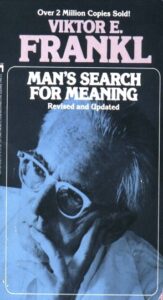 “If there is a meaning in life at all, then there must be a meaning in suffering. Suffering is an ineradicable part of life, even as fate and death. Without suffering and death human life cannot be complete.… Suffering ceases to be suffering at the moment it finds a meaning, such as the meaning of a sacrifice.” Viktor E. Frankl (1905-1997) Holocaust survivor and author of Man’s Search for Meaning
“If there is a meaning in life at all, then there must be a meaning in suffering. Suffering is an ineradicable part of life, even as fate and death. Without suffering and death human life cannot be complete.… Suffering ceases to be suffering at the moment it finds a meaning, such as the meaning of a sacrifice.” Viktor E. Frankl (1905-1997) Holocaust survivor and author of Man’s Search for Meaning- “Our avoidance instinct is also due to the fact that our culture has decided that suffering has no value.” Frank Ostaseski, Buddhist teacher and founder of the Zen Hospice Project
- “You must remember that no one lives a life free from pain and suffering.” Sophocles (497-406 BCE)
- “Whoever got this idea that we could have pleasure without pain? It’s promoted rather widely in this world, and we buy it.” Pema Chödrön, Tibetan-Buddhist teacher and author.
-
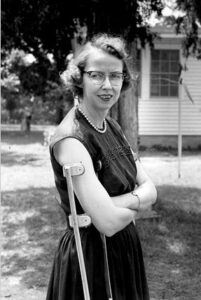
Flannery O’Connor
“I have never been anywhere but sick. In a sense, sickness is a place, more instructive than a long trip to Europe, and it’s always a place where there’s no company; where nobody can follow. Sickness before death is a very appropriate thing and I think those who don’t have it miss one of God’s mercies.” Flannery O’Connor (1925-1964) died after living 13 years with Lupus.
- “The idol of control holds out to us the hope that suffering and death can be eliminated. If we just get smart enough, we will gain control of pain and even of death. That false hope, in turn, has the effect of setting suffering up as an enemy to be avoided at all costs. We can choose never to suffer!” Elaine M. Prevallet, S.L., Benedictine Nun
- “Terry, dying doesn’t cause suffering. Resistance to dying causes suffering.” Terry Tempest Williams quoting her dying mother in the book Refuge.
_________________________
Chaplain Hank Dunn is the author of Hard Choices for Loving People: CPR, Feeding Tubes, Palliative Care, Comfort Measures and the Patient with a Serious Illness and Light in the Shadows. Together they have sold over 4 million copies. You can purchase his books at hankdunn.com or on Amazon.
_________________________
End-of-life concerns Number (%)
- Losing autonomy 2,216 (90.3)
- Less able to engage in activities making life enjoyable 2,208 (90.0)
- Loss of dignity 1,666 (71.7)
- Burden on family, friends/caregivers 1,179 (48.0)
- Losing control of bodily functions 1,077 (43.9)
- Inadequate pain control, or concern about it 686 (28.0)
- Financial implications of treatment 125 (5.1)
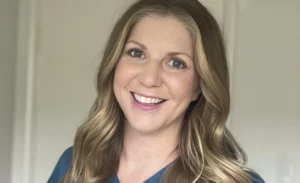

 As I have done for the last 25 years, I quickly opened the most recent annual
As I have done for the last 25 years, I quickly opened the most recent annual 
 “If there is a meaning in life at all, then there must be a meaning in suffering. Suffering is an ineradicable part of life, even as fate and death. Without suffering and death human life cannot be complete.… Suffering ceases to be suffering at the moment it finds a meaning, such as the meaning of a sacrifice.” Viktor E. Frankl (1905-1997) Holocaust survivor and author of Man’s Search for Meaning
“If there is a meaning in life at all, then there must be a meaning in suffering. Suffering is an ineradicable part of life, even as fate and death. Without suffering and death human life cannot be complete.… Suffering ceases to be suffering at the moment it finds a meaning, such as the meaning of a sacrifice.” Viktor E. Frankl (1905-1997) Holocaust survivor and author of Man’s Search for Meaning
